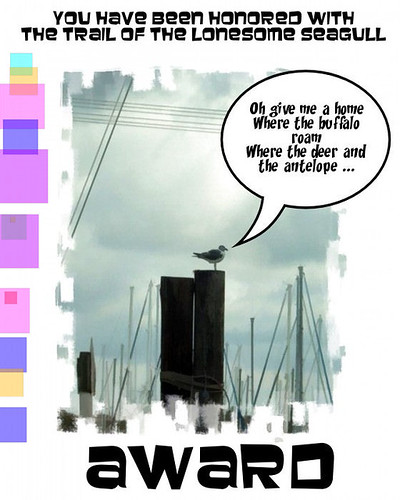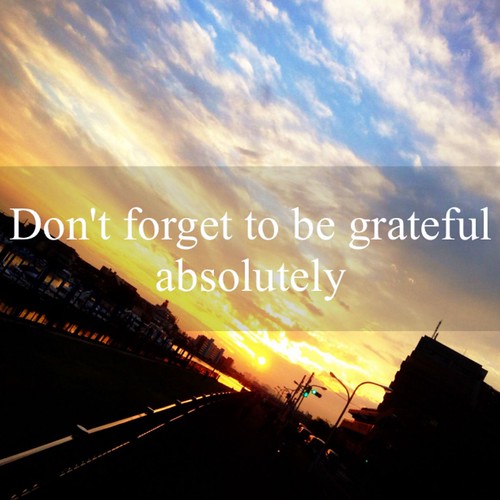
… this has meaning for me because I grew up in Aransas Pass and Corpus Christi, Texas and had more heros who were harbor pilots, tug boat captains, commercial fishermen. I even became a merchant seaman at age 16. My cousins were all on farms in Central Texas and were "my heros have always been cowboys" oriented. I spent every summer before World War 2 on their farms, trying to act like a cowboy.
Here is a little essay I’ve written on my solution to my problem with the Flickr groups and the research that helped me make a decision:
The great leaders of today scream at us to be OBJECTIVE and PRAGMATIC. "Use your common sense" someone shouts! And yet in reality those same people are shouting their commands from a position of almost pure SUBJECTIVITY. They want you to buy a certain product, vote a certain way or perhaps hate a particular thing or group of people. I think neurologist Antonio Damasio has found the true value of subjectivity which turns out NOT to be such a bad thing after all.
When I was young and wrapped all around my thirty-five year old brain, I thought I was selling a lot of watercolors because I was REALLY GOOD and people were making an investment. In fact many of my customers spoke of my art as an investment. I always told them, "Don’t hold your breath." Along with that Prosacoid warm feeling, I noticed something else, too. A lot of my customers were middle-aged females and they tended to buy more from young men than any other demographical group. They also tended to spend more time with me when Sherry wasn’t around. Likewise I noticed that a good looking blonde with big tits could sell a lot of paintings. So, you can see the reality was always evident, but an emotional decision caused me to overlook that reality.
As I sit here wrapped around my eighty-one year old brain, I’m thinking of recent decisions I’ve made and when I say recent, I’m talking as long as fifteen years ago. In fact, I’m driving a fifteen year old car that I should never have purchased and I’m also using some things I shouldn’t have spent so much money on, because, I surmise, the rational side of my brain has deteriorated, leaving the emotional side with even more leeway than normal. I’m surprised I haven’t tried to buy up all those blonde’s paintings. So it goes.
That brings my eighty-one year old brain to the subject I had in mind in the first place, which is the unmanageability of Flickr Groups and the vast vault of Cosmic Awards available to substitute for the written word. I have joined so many groups I couldn’t pass a True-False test as to which ones I’m in. Why did I do that? I join and then I never post. That’s probably because I forgot the name of the group two days later, because during that two day, I’d joined six more groups. Why do I do that?
I asked Deb (happysweetmama) to help me work out a plan with my groups that would not require practically my full time to manage them. I love the groups which permit posting by INVITE only, because I can click on "ADD IT" and put the chosen image into the group and not have to remember the name of the group. Sigh, a breath of relief, at last. BUT, DAMN! Now I have to become an art critic and go find the freaking Icon for Comment, copy it and then go to the group and decide which of the 4, 287 images are my 3 winners from the "POST 1 AWARD 3′ rule, AND DON’T FORGET, THE FREAKING SWEEPERS ARE RUNNING, right? I did what was natural for me and what neurologist kAntonio Damasio says IS NATURAL. I went through the first ten pages, looking for the names of contacts, friends and family who I like and awarded them. TEN PAGES? Yes, and even then sometimes I got to the tenth page and still hadn’t made an award. So, I’d tediously retreat to page 9 after a thorough search of page 10, looking for potential Leonardos and Leonardas. That little process took me back to 1952, when I was a public school art teacher.k
I hadn’t taught art a week before I was called upon to "JUDGE" an art show in a neighboring small town. All of these shows had the same SWEEPERS working. Everything had to be in OIL, everything had to be COPIED (The Blue Jesus Praying in the Garden seemed to be a favorite) and copied either by a child under the age of 15 or by a FEMALE OVER THE AGE of 55. Otherwise the "sweeper committee" swept you away and the judge never saw your entry.
Now, if I can get you to step away from Floydada, Texas and the Floydada Art Guild’s annual show, we’ll move on to Corpus Christi and San Antonio, Texas where the same intelligence and sweepers were in place. I watched this fiasco for several years, spending a lot of time and gasoline carrying the Corpus Christi paintings to San Antonio only to have to go back and get the ones demolished in reputation by the sweeper a day or so later. The judges here were usually college professors and you can be assured they gave out awards that were conisitent with what they were teaching, regardless of what the regional and national trends were. I finally developed a motto which went something like the, "WHO IN THE FREAKING HELL ARE YOU TO JUDGE MY PICTURES?" …and that worked for me. I simply quit entering shows and went only sales shows. I was able to get off my medications and live a normal life.
SO, all that having been said and said and said and said. Here is my new lifestyles involving Flickr Groups, and remember, MY sweepers are working, so don’t try to confuse me. I’m not going to number my rules for fear of sounding anal retentive, but basically here’s my solution to MY problem. There are lots of solutions out there, so don’t feel like I’m preaching, ok?
No. 1 (I forgot) … ok, if someone gives me the seconds of their life to visit my site, I will return with some of the seconds of my life and visit their site. I will fave and comment and award based on an emotional response, but some "great voice coming out the clouds, saying ‘I CONDEMN THIS IMAGE, IT’S UGLY!’ and I will take the time to really look at your images, because I don’t have ten pages to research any more. I will give out AWARDS, but they will be my awards and if the sweepers do their most violent thing, then so be it. Whether you’re a friend or contact or not on my contact list, you will get a return visit each and every time. I may have to put six comments under each of you images, but you will be rewarded with the seconds of my life for the seconds of yours. I seriously thing we will be drawn together by mutual interest, instead of by a pyramid formula to generate comments.
Now, how about those groups where I’m invited and no one comes to look at the invited image and the sweepers notices my name in red on the black notice for hving not given three awards. If no one came then I probably can live without this group, right? So, if the sweeper get’s me I’ll try not to let the screen door hit me in the ass as I leave.
And, those are my very best thoughts on this subject. Thank you for your kind attention. I do not proof read, so try and make corrections as you read. Again, thank you and good night. There will be no questions at this time.
This is the research that opened my eyes to a facet of reality, but alas only MY reality.
In today’s excerpt–decisions. It has long been held that the rational parts of our brains make the best decisions, and better decisions are made when the emotional parts of our brains are suppressed in the decision-making process. It turns out that the opposite is true–we cannot make decisions without employing emotions:
"In 1982, a patient named Elliot walked into the office of neurologist Antonio Damasio. A few months earlier, a small tumor had been cut out of Elliot’s cortex, near the frontal lobe of his brain. Before the surgery, Elliot had been a model father and husband. He’d held down an important management job in a large corporation and was active in his local church. But the operation changed everything. Although Elliot’s IQ had stayed the same–he still tested in the 97th percentile–he now exhibited one psychological flaw: he was incapable of making a decision.
"This dysfunction made normal life impossible. Routine tasks that should have taken ten minutes now required several hours. Elliot endlessly deliberated over irrelevant details, like whether to use a blue or black pen, what radio station to listen to, and where to park his car. … His indecision was pathological. Before long, Elliot was fired from his job. That’s when things really began to fall apart. He started a series of new businesses, but they all failed. He was taken in by a con man and was forced into bankruptcy. His wife divorced him. The IRS began an investigation. He moved back in with his parents. …
"But why was Elliot suddenly incapable of making good decisions? What had happened to his brain? Damasio’s first insight occurred while talking to Elliot about the tragic turn his life had taken. … Damasio remembers, ‘I never saw a tinge of emotion in my many hours of conversation with him: no sadness, no impatience, no frustration.’ … The results [of tests] were clear: Elliot felt nothing. He had the emotional life of a mannequin.
"This was a completely unexpected discovery. At the time, neuroscience assumed that human emotions were irrational. A person without any emotions–in other words, someone like Elliot–should therefore make better decisions. … [However], when we are cut off from our feelings, the most banal decisions became impossible. A brain that can’t feel can’t make up its mind. … Other patients with similar patterns of brain damage … all appeared intelligent and showed no deficits on any conventional cognitive tests. And yet they all suffered from the same profound flaw: because they didn’t experience emotion, they had tremendous difficulty making any decisions. … The crucial importance of our emotions–the fact that we can’t make decisions without them–contradicts the conventional view of human nature, with its ancient philosophical roots. …
"How does this emotional brain system work? The orbitofrontal cortex (OFC), the part of the brain that Elliot was missing, is responsible for integrating visceral emotions into the decision-making process. It connects the feelings generated by the ‘primitive’ brain–areas like the brain stem and the amygdala, which is in the limbic system–to the stream of conscious thought. When a person is drawn to a specific receiver, or a certain entree on the menu, or a particular romantic prospect, the mind is trying to tell him that he should choose that option. It has already assessed the alternatives–this analysis takes place outside of conscious awareness–and converted that assessment into a positive emotion. And when he sees a receiver who’s tightly covered, or smells a food he doesn’t like, or glimpses an ex-girlfriend, it is the OFC that makes him want to get away. The world is full of things, and it is our feelings that help us choose among them.
"When this neural connection is severed–when our OFCs can’t comprehend our own emotions–we lose access to the wealth of opinions that we normally rely on. All of a sudden, you no longer know what to think about the receiver running a short post pattern or whether it’s a good idea to order the cheeseburger for lunch. The end result is that it’s impossible to make decent decisions. This is why the OFC is one of the few cortical regions that are markedly larger in humans than they are in other primates. While Plato and Freud would have guessed that the job of the OFC was to protect us from our emotions, to fortify reason against feeling, its actual function is precisely the opposite. From the perspective of the human brain, man is the most emotional animal of all."
Jonah Lehrer, How We Decide, Houghton Mifflin, Copyright 2009 by Jonah Lehrer, Kindle Loc. 233-87.
Posted by mrbill78636 on 2009-04-25 16:37:33
Tagged: , digital imaging , PSP X2 , Adobe 5 , Corel 8 , Dada humor







